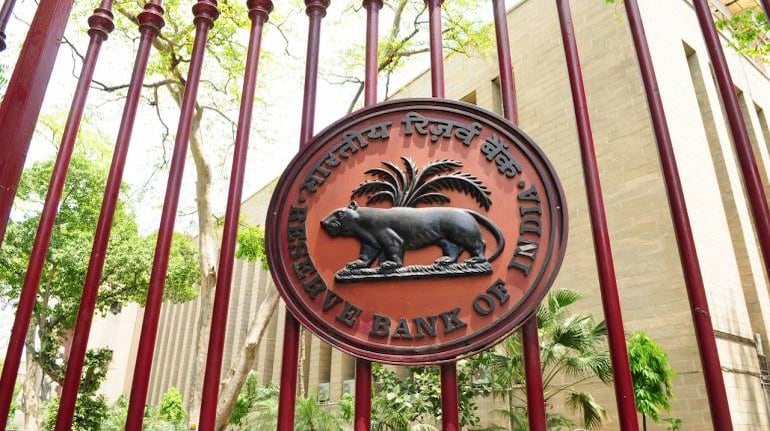



The Government of India does not take appointments at Reserve Bank of India (RBI) seriously. As per the RBI Act, the central bank should have four Deputy Governors, but the government has currently filled only three positions — and this at a time when the RBI clearly needs more hands and minds to mitigate the impact of COVID-19.
What is more perplexing is how this exercise is being handled. On March 31, the government extended the tenure of BP Kanungo by one year — otherwise his tenure was ending in early April. The same day, NS Vishwanathan, whose tenure was to end in July, retired, and the government or the RBI gave no statement.
The departure of Vishwanathan led to reallocation of his portfolio amidst the three deputy governors. This was obviously cumbersome as the portfolios were reallocated about two-and-a-half months back, when Michael D Patra was appointed deputy governor.
Patra was appointed on January 15, almost six months after Viral Acharya acquitted office. Acharya held the important monetary policy and economic research department, and the position should have been filled up quickly. Acharya also served as a voting member on the Monetary Policy Committee and after his exit, Kanungo filled in.
Markets were given the impression that the government was looking for an expert outside the RBI, but it was finally Patra — who has been a career central banker, executive director of the RBI and member of the MPC — who was appointed. After Patra’s appointment, Kanungo was relieved of the MPC duty as there can be only one deputy governor on the MPC. The government is aware of the tenure and retirement schedule of officers, and thus should plan much in advance to fill posts and not leave them vacant for a long time.
Another fact is that there is a lack of clarity about the process followed for appointments. After Acharya’s exit in July 2019, in January the Appointments Committee of the Cabinet (ACC), which is responsible for all the key appointments of India’s institutions, approved Patra’s name. The ACC comprises the Prime Minister and the Home Minister. It is understood that when it comes to appointments to financial institutions, the finance ministry is consulted, but the details are not clear. It is not clear what role the RBI Governor has in the appointment of deputy governors. According to some former governors, the governors give their opinion, but the ACC takes the final call.
The RBI’s is not a standalone case. Central bankers world over are appointed in similar secretive ways, as was seen recently in the appointments to the Federal Reserve, Bank of England, European Central Bank and so on.
According to Peter Conti-Brown, Professor at University of Pennsylvania, if we have short-lists for CEOs of top companies, university presidents and, of course, political positions, why not have a similar process for a public institution such as the Federal Reserve?
He goes a step further and actually compares the process akin to that in Vatican City: “We see high quality people who participate in high stakes negotiations about these prominent positions all the time and in all parts of society, private sector, public sector, civil sector. And so the idea that we should have, just the white smoke coming out of the Vatican when the New York Fed president or the Philadelphia Fed president, whatever, has been selected… that doesn't sound like democratic institutions to me, that sounds like secret societies.”
The attribution to a secret society reminds one of the late William Greider’s ‘Secrets of the Temple: How the Federal Reserve Runs the Country’, published in 1989. Greider takes us ‘inside the central bank that is in some ways more secretive than the CIA and more powerful than the President or Congress’. It showed how much of Federal Reserve policies are shrouded in secrecy and that it manipulated interest rates to influence economic conditions not just in United States, but even the world. Greider’s book went on to give a very different picture of central bank policies, so much that it could give Dan Brown ideas for his next book.
With advent of inflation targeting in 1989, central banks began to open their temple gates to the public and have come a long way to explain their policies. However, it remains closed on many other issues that matter to the people.
Central bank appointments matter greatly and merits far more public scrutiny than is the case. Conti-Brown points as an example the appointment of John Williams as the Head of the New York Federal Reserve. Williams was formerly head of the San Francisco Fed and is a top macro-economist. However, the head of NY Fed requires having good understanding of markets and bank supervision—two areas Williams is not strong in. Likewise is the case of Neel Kashakari, who was the key architect of the fiscal policy for the Barack Obama administration, and is now the President of the Minneapolis Fed.
Central banks on their own cannot open up more, and will require an equal effort from the government. The lack of clarity in appointments needs to be removed, and for that public/media feedback should be incorporated into the process. The appointments also have to be time-bound. It is only then that these central banks can begin to truly resemble their claim of them being a public institution.
Amol Agrawal is faculty at Ahmedabad University. Views are personal.Discover the latest Business News, Sensex, and Nifty updates. Obtain Personal Finance insights, tax queries, and expert opinions on Moneycontrol or download the Moneycontrol App to stay updated!
Find the best of Al News in one place, specially curated for you every weekend.
Stay on top of the latest tech trends and biggest startup news.